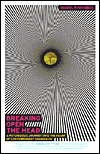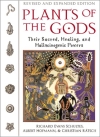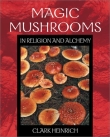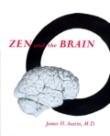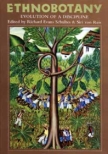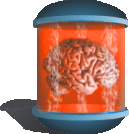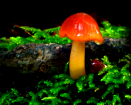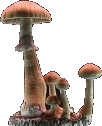
| ©Copyright 2002-2008 [Shawn Nacol] All rights reserved |
Here are some psychoPharm appropriate books:
Science Fiction / Cyberpunk essays & criticism:
The Dreams Our Stuff is Made Of: How Science Fiction Conquered the World by Thomas Disch I love Thomas Disch's novels, so it's no surprise that this snappy piece of nonfiction is a compelling, brilliant read. He loves his subject unsentimentally. Which is a hard thing to do, natch. Opinionated, compelling and unputdownable. Amazon: "Disch elaborates a vision of science fiction as one of the twentieth century's most influential manifestations of America as a culture of liars. Among the frauds are the alien abduction stories of Whitley Strieber, the sadomasochistic dominance fantasies of John Norman, and the co-opting of cyberpunk by postmodern academics and avant-gardists trying to stay hip. Disch plays very few favorites, and when ideology gets in the way of good writing, it doesn't matter what side you're on." | |
Science Fiction and the Theatre Fantastic survey of this extremely narrow topic. Identifies several throughlines and themes that recur in the overlap between these two strangely separated worlds. Amazing how few SF plays exist, and how few of those managed some level of success. Includes an exhaustive bibliography of SF plays as an appendix. from the Publisher: "Willingham presents a historical survey of science fiction drama and focuses particularly on the history of attempts to stage science fiction. Emphasis on the nature of science fiction drama, its origins and history, the staging of science fiction plays, and works by representative playwrights. The appendix offers an annotated list of 328 science fiction plays, with entries grouped in five categories: original drama, adaptations, musicals and operas, theatre pieces and multi-media works, and Frankenstein dramas. An extensive bibliography concludes the volume." |
|
Science Fiction (The New Critical Idiom) Amazon: "In Science Fiction, Adam Roberts offers a clear and engaging account of the phenomenon, illustrating the critical terminology and following the contours of its ongoing history. You will find that this book: provides a concise history of science fiction, and explores the key concepts in SF criticism and theory; focuses particularly on the impact that postmodernism and technological advances have had on the subject; examines the interactions between science fiction and science fact - with events such as the moon landings, the Challenger disaster, and the film Apollo 13; concentrates on SF in book or short-story form as well as SF on screen; discusses in detail the categories of "the Alien," "Technology," and "the Future," looking at Cyberpunk, New Wave, and Alternative Science Fictions, as well as the mainstream." | |
Terminal Identity: The Virtual Subject in Postmodern Science Fiction Amazon: "His discussion ranges far and wide in analysis of the ideas about people and machines conveyed by and reflected in science fiction books and movies. As dense as it is deep, Bukatman's work is essential reading for anyone with a serious interest in science fiction, postmodern theory, or the relationship between technology and human culture. The glowing reviews by Bruce Sterling and Larry McCaffery were well-deserved." | |
by Dani Cavallaro Amazon description: "Science Fiction and the Work of William Gibson. This book has a lot of valuable information on the cyberpunk movement, and Gibson's critical contribution to the genre." | |
Replications: A Robotic History of the Science Fiction Film by J. P. Telotte HOTWIRED said, "A new addition to the study of film history as collective unconscious. Telotte puts our cultural obsession with artificial humans on th stand--our obsession, he says, springs from our narcissism. It all melts into a schizophrenic study where the robot/cyborg is both protector and enemy, liberator and threat to our position on the food chain. A good general resource on sci-fi film, The extensive bibliography and filmography will keep you running back and forth to the video store and library so much, you'll need mechanical legs." | |
by Vivian Sobchack Amazon: "Screening Space, the reprint classic from Rutger's University Press, has been significantly enlarged to update the science fiction film since the early 1980s, examining classic and contemporary sci-fi films as a significant genre. Winner of the 1995 Pilgrim Award, the book examines the differences between the religious themes of 2001: A Space Odyssey and the clinical random evil depicted in Event Horizon. Vivian Sobchack's detailed analysis of a wide range of films and inclusion of black-and-white movie stills allows a better understanding of science fiction films as an art form that can often present its characters, a la Blade Runner, as "more human than human." |
Entheogens:
The Cosmic Serpent by Jeremy Narby The book that started it all. A thrilling and inspiring read that straddles religion, biology and the history of human consciousness. He makes some speculative leaps that many will resist, but his excitement and insight make the gaps in research seem inconsequential. A beautiful attempt to reconcile mythic logic with modern science. "A personal adventure, a fascinating study of anthropology and ethnopharmacology, and, most important, a revolutionary look at how intelligence and consciousness come into being. This adventure in science and imagination, which the Medical Tribune said might herald "a Copernican revolution for the life sciences," leads the reader through unexplored jungles and uncharted aspects of mind to the heart of knowledge. In a first-person narrative of scientific discovery that opens new perspectives on biology, anthropology, and the limits of rationalism, The Cosmic Serpent reveals how startlingly different the world around us appears when we open our minds to it." ( Amazon) | |
Food of the Gods: The Search for the Original Tree of Knowledge: A Radical History of Plants, Drugs, and Human Evolution An exhilarating read about humanity's relationship to psychoactive flora and their impact on our evolution. McKenna possesses an encyclopedic knowledge of his topics and braids them together with wit, style and ferocity. "The beloved ethnobotanist puts forth the theory that magic mushrooms are the original 'tree of knowledge' and that the general lack of psychedelic exploration is leading Western society toward eventual collapse or destruction" (Amazon) | |
by Terence McKenna Publisher's Weekly: "In this spiritual journey, McKenna ponders shamanism, Buddhism, and ethnopharmacology. By the phrase "archaic revival," McKenna refers to a return to shamanism, which he believes can be enhanced by current scientific practices. The next level of spiritual transformation, he explains, is achieved by the intelligent use of psychedelics and should be performed only by thoughtful explorers rather than experimenters, scientific or otherwise."
| |
by Terence McKenna Amazon: "Mesmerizing, surreal account of the bizarre adventures of Terence McKenna, his brother Dennis, and a small band of their friends, is a wild ride of exotic experience and scientific inquiry. Exploring the Amazon Basin in search of mythical shamanic hallucinogens, they encounter a host of unusual characters -- including a mushroom, a flying saucer, pirate Mantids from outer space, an appearance by James and Nora Joyce in the guise of poultry, and translinguistic matter -- and discover the missing link in the development of human consciousness and language."
| |
Breaking Open the Head: A Psychedelic Journey Into the Heart of Contemporary Shamanism Moving and intelligent. A modern intellectual seeking a cure for his spiritual malaise. Would probably also be a solid introduction to the subject if you haven't read anything else. A dazzling work of personal travelogue and cultural criticism that ranges from the primitive to the postmodern in a quest for the promise and meaning of the psychedelic experience. NY Times: "Pinchbeck's unsettling odyssey forces us to confront the unexamined assumptions in our attitude not just toward mind-altering substances but toward premodern thought, epistemology and the validity of mystical experiences." | |
DMT: The Spirit Molecule: A Doctor's Revolutionary Research into the Biology of Near-Death and Mystical Experiences "Rick Strassman's pioneering research work with DMT raises fascinating questions about the neurochemical basis of experience. Truly adventurous reading!" (Andrew Weil) "Clinical research into the psychedelic substance DMT, a plant-derived substance that is also produced by the human brain. The volunteers reported a variety of positive mystical or frightening hallucinatory experiences including encounters with intelligent entities." (Amazon review) | |
Plants of the Gods: Their Sacred, Healing and Hallucinogenic Powers "A condensed ethnobotanical encyclopedia of hallucinogenic drugs with nicely illustrated cultural/art/chemical information . This book illustrates why these psychoactive plants have been so important, nay, a necessity of primordial human consciousness and experience cause of their medicinal, teleportal, and communicative capabilities. It even includes a beautifully annotated color-picture field guide lexicon. Schultes was the late director emeritus of the Botanical Museum at Harvard U. Coauthors are A. Hoffman, the Swiss biochemist who discovered LSD, and Ratsch, of the German Society for Ethnomedicine." (Amazon) | |
Shamanism and the Drug Propaganda Journal of Cognitive Liberties: "Dan Russell traces the roots of the modern Drug War back to their ancient unconscious origins... Shamanism and Drug Propaganda is so detail rich that a summary does it an injustice. In essence, however, Russell argues that over time, the stories told by ancient people (culminating in the New Testament), have been co-opted, corrupted, and manipulated by forces bent on producing a conformist industrial culture." | |
Entheogens and the Future of Religion Forte and his dozen principal contributors seek the wide acceptance, including legalization and mature practice, of "entheogens" -- "god spawning" psychoactive substances (LSD, mescalin [sic], etc.) that are deemed especially suited for use on designated or readily identifiable sacramental occasions. (Amazon review) | |
Persephone's Quest Discusses the role played by psychoactive mushrooms in the religious rituals of ancient Greece, Eurasia, and Mesoamerica. Wasson, who investigated how these mushrooms were venerated and used by different native peoples, here joins with three other scholars to discuss his discoveries. (Amazon) | |
Magic Mushrooms in Religion and Alchemy Weird, detailed, and suffused with fervor for that most ancient of hallucinogenic sacraments: Amanita Muscaria. The section on alchemy alone makes this book a must read. Even if only a tenth of his claims are valid, his scholarship and enthusiasm make this book essential for people who love forgotten history, entheogenic theory, and religious archaeology. Far-fetched (and he admits it) in places but thoroughly intriguing and compelling. A beautiful book. "This beautifully illustrated investigation into the entheogenic use of psychoactive mushrooms, more specifically the fly agaric or Amanita Muscaria, draws parallels between religious literature and the psychedelic experience. The author looks at ancient cultures and certain symbols in the Hindu scriptures, Judaism, Christianity and Alchemy." (Amazon review) |
Neuroscience & Consciousness
Zen and the Brain: Toward an Understanding of Meditation and Consciousness by James H. Austin Amazon: "A unique neurologist-Zen Buddhist has written a tome that is a map to all the mysteries of meditation and mind. Take breathing out, for example. We spend just over half of our breathing time exhaling. For meditating monks, it's a full three-quarters. EEGs show us that the act of exhaling helps physically quiet the brain. Many other causal connections can be found between Zen practices and the physiology of the brain, and James H. Austin lays them out one by one, drawing from his own Zen experiences and the latest in neurological research. So if you've ever wondered what the corpus callosum has to do with consciousness or how the limbic system contributes to enlightenment, Austin will get your brain racing and put your mind at ease." | |
Evolution of Consciousness: The Origins of the Way We Think "Based on his life's research, the author of the bestseller The Psychology of Consciousness provides a provocative look at the evolution of the mind. He explains that we are not rational but adaptive, and that it is Darwin, not Freud, who is the central scientist of the brain. Photographs and line art throughout." | |
Synaptic Self: How Our Brains Become Who We Are Amazon review: "To Joseph LeDoux, the simple question, "What makes us who we are?" represents the driving force behind his 20-plus years of research into the cognitive, emotional, and motivational functions of the brain. LeDoux believes the answer rests in the synapses, key players in the brain's intricately designed communication system. Here, LeDoux nimbly compresses centuries of philosophy, psychology, and biology into an amazingly clear picture of humanity's journey toward understanding the self. LeDoux makes a solid case for accepting a synaptic explanation of existence and provides to the reader generous helpings of knowledge, amusement, and awe along the way." |
|
The Three-Pound Universe Library Journal: "An excellent survey of neuroscience, based on interviews with major figures on the cutting edge of research. This is exciting reading about a world of fast-breaking discoveries, the underlying theme of which is the search for the basis of consciousness: the mind/brain relationship. The authors engage the reader's interest with their clear presentation of the "hard" science of the brain anatomy, physiology, chemistry without compromising the complexity of the many new findings." |
Pharmaceuticals: History & Criticism:
Pills-a-go-go: A Fiendish Investigation into Pill Marketing, Art, History, and Consumption Hilarious. Information packed. Fantastic compendium of pop culture and hard science references to the little wacky candies that have shaped our society since the word go. | Prescriptions for Profits: How the Pharmaceutical Industry Bankrolled the Unholy Marriage Between Science and Business A revealing look at the world of research science--and the way it has been corrupted over the past half-century by the lure of big money. Focusing on the booming pharmaceutical industry and the ambitious people who've helped shape it, science writer Linda Marsa convincingly argues that "commercialism has tainted basic science to the point where it now jeopardizes public health." (Amazon) | Billion Dollar Molecule: The Quest for the Perfect Drug "From test tubes to the Wall Street IPO and beyond, this is the riveting true story of a start-up pharmaceutical company working to create an anti-AIDS drug. Scientifically accurate, yet written with an attention to plot, timing, dialogue, and development of character more characteristic of the best thrillers." (Amazon) |
Aspirin Wars: Money, Medicine, and 100 Years of Rampant Competition The fierce, global competition for a share of the $25 billion analgesic trade based on aspirin, the 100-year-old, multipurpose drug, and its derivatives (Bufferin, Alka Seltzer etc.), and rival analgesics (Tylenol, Advil etc.) is vividly recounted here by Mann (coauthor of The Second Creation ) and economist Plummer. | |
Opium Ingram: "This definitive history of one of the most notorious drugs of all time traces opium's astounding impact on world culture--from its religious use by prehistoric peoples to its influence on the imaginations of the Romantic writers; from the earliest medical science to the Sino-British opium wars." The New York Times Book Review: "A great sprawling catalogue of sheer information about opium and its effects over the last 4,000 years, during which it has always been both a blessing and a curse." | |
Ethnobotany: Evolution of a Discipline Book Jacket: "Ethnobotany: Evolution of a Discipline is a seminal volume, published on the 100th anniversary of this fascinating science, celebrating its recent evolution and providing a comprehensive summary of the history and current state of the field. The editors are world-renowned ethnobotanists, and the range of carefully selected articles (most of them written specifically for this book) presents a truly global perspective on the theory and practice of today's ethnobotany. Although rooted in antiquity, ethnobotany is a dynamic contemporary science with tremendous importance for the future. The diminishing rain forests may well hold unknown keys to conquering devastating new diseases, and peoples native to those regions can often lead the way with their herbal knowledge. Experimentation with as-yet-unstudied plants may provide new solutions to expand food and energy reserves for our overpopulated planet." | |
Tales of a Shaman's Apprentice Amazing firsthand account from a man who's doing everything humanly possible to preserve indigenous wisdom and the shamanic traditions of South America. Amazon: "A century ago, malaria was killing Washingtonians, Londoners, Parisians. Today HIV, along with various cancers, has taken its place among worldwide epidemics. Quinine, extracted from the cinchona tree of the Amazonian rainforest, quelled malaria; alkaloids taken from trees in the West African rainforest may well yield a cure for AIDS. Yet those woods, Mark Plotkin tells us, are fast disappearing, along with the native peoples who know the powers of the plants that dwell there. His account of wandering through the Amazonian jungles focuses on local knowledge about plants, whose uses range from the mundane to the magical. The rainforests of the world, Plotkin notes, are our greatest natural resource, an intercultural pharmacy that can cure woes both known and yet unvisited." |
Must read Science Fiction / pre&postCyberpunk novels:
(even if you hate Sci-fi)
Snow Crash The reinvention/watershed of cyberpunk. Arguably, the 1st major postcyberpunk novel. An incendiary nanocomedy centered on a fellow called Hiro Protagonist who delivers pizza for the Mafia run Cosa Nostra Pizza Service (delivery in 30 minutes or you can kill the delivery kid) Nuff said. A wild, wild ride about artificial reality, mythology, stealing information and the powerful roots of language. Crazy and unforgettable and incandescent! Romanorum.net review: "Snow Crash is the all time best book to be written in the Cyberpunk genre ever. Better even than Neuromancer? One word: Hellyes. Don't get me wrong St. Gibson's book set a wonderfully interesting stage, but Snow Crash is the book that laced it with kerosene and set the thing ablaze while dancing through the 'net swinging monoblades. As Benjy Feen put it, "If Neal Stephenson wrote a book about pocket lint, it would still somehow involve attack helicopters." As a Cyberpunk Referee, I hereby challenge you to go to a bookstore, look at a copy, and read the first chapter. If you don't walk out of that store with a newly purchased edition then there's something seriously wrong with you gato. Yes, it's that good. (Word of warning, there's 20 pages in the middle that are boring as hell--you'll know them when you get to them. Suffer through those and the rest of the book takes off like a crazed weasel on a nitrous-burning hoverbike)."
Diamond Age Heart-breaking. Breath-taking. Hilarious. Intellectually ravishing. I actually cried while I was reading this on the train to DC. Felt like a lunatic but couldn't stop myself. Stephen tops his debut novel with a dazzling tale of neoVictorians and nanotech centering on an artificially intelligent "primer" that teaches a young girl how to... well... change the entire goddamned world. |
|
Neuromancer et al. De facto Founder of cyberpunk |
|
Altered Carbon Phenomenal... Buy. It. Now. "Altered Carbon has all the hallmarks of classic mysteries, and a creamy ultra-violent science fiction feel. Morgan gets both the SF and mystery genres just perfectly right. This is hard boiled hard science fiction. It's not dry, it doesn't lecture. It shoots first, vaporizes the head, and never asks questions. Be prepared to forgo the usual social interactions when you start this one." Shapeshifter In a society in which death has been rendered practically obsolete, suicide and murder take on different significances. After a particularly brutal offing, former UN envoy Takeshi Kovacs finds himself "resleeved"--that is, his consciousness has been put in a new body--and hired as a private investigator by Laurens Bancroft, one of twenty-fifth-century society's old rich in Bay City (formerly San Francisco). Bancroft claims he was murdered, but the police say it was a suicide. After Kovacs gets hit at his hotel within hours of being resleeved, he sees the possibility that Bancroft was, in fact, murdered, and that someone wants to keep it very hush-hush. As he investigates, he uncovers a far-reaching conspiracy with ties to the most unsavory characters in his generally unsavory military and criminal past. This far-future hard-boiled detective story is a lovely virtual-reality romp | |
Kiln People Golem ethics and the Commercialization of Mortality!
| |
|













